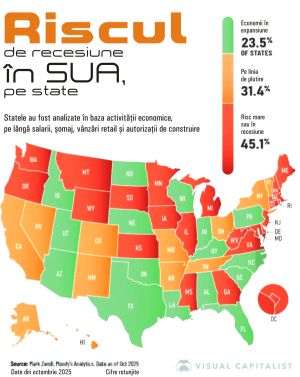
"An essential point in the social philosophy of interventionism is the existence of an inexhaustible fund which can be squeezed forever. The whole system of interventionism collapses when this fountain is drained off: The Santa Claus principle liquidates itself"- Ludwig von Mises, Human Action.
Santa Claus will not come this year to governments and financial markets. The worse news is that central banks and governments are about to finally discover that Santa Claus does not exist. The losses recently announced by the U.S.-based Goldman Sachs and Morgan Stanley are only a preamble to the global financial reporting for Q4, 2008, which promises to be even more difficult than the previous quarter. The major international banks will have to increase capital once more in order to cover losses from the past, while the revival of lending is about to be postponed again. A small example shows how much the financial landscape has changed since the Autumn of 2007. Approximately one year ago, the Royal Bank of Scotland paid 100 billion USD to buy ABN Amro. This sum, which was huge at that time, no longer impresses anyone. What can you buy for 100 billion USD nowadays? A "package" of banks such as Citigroup (market capitalization of 38.26 billion USD), Deutsche Bank (19.93 billion USD) and Goldman Sachs (39.19 billion USD). The change left is enough to buy General Motors, too (2.74 billion USD). All the monetary relaxation efforts of the Federal Reserve only managed to postpone the inevitable. The Fed failed to explain convincingly why the latest cut in the key rate would achieve what the previous seven cuts operated this year did not achieve. The actual key rate has been under the Fed"s target for at least two months (see chart), and the discrepancy seems to be growing.
Moreover, the Federal Reserve"s desperate attempt to cut the cost of financing on the market only led to a rapid growth of re-financing, according to data from the Mortgage Bankers Association quoted by Bloomberg. Fed"s intention was to stimulate the purchase of new homes and stop the price collapse. How painful do failures have to be for the central banks to learn a little something about the law of unexpected consequences in the economy? The same family of unexpected consequences will include the measures to rescue the auto industry. The 13.4 billion USD aid granted the U.S. Government plus the 3.3 billion disbursed by the Canadian Government will only postpone the execution of General Motors and Chrysler. Even a few years ago, the two companies did not manage to see or did not want to see that, eventually, this was going to be the final result. How could they possibly believe that the demand for cars can be sustained indefinitely by cheap loans issued for 8 years? Maybe the attitude of the formerly great carmakers could be impossible to understand, if it was not widespread on a macro-economic plane and even promoted by the very Federal Reserve and U.S. Government. John Kemp from Reuters believes that the Federal Reserve is making a "time-inconsistent" promise when saying that they will maintain the key rate close to zero indefinitely. Upon the first signs of economic revival, the Fed will have to increase the key rate in order to prevent an inflation boom. The increase in the key rate will cause extraordinary losses to treasury bond investors. "Bizarrely, Bernanke and Co are in fact inviting investors to bet the policy will fail, the economy will remain mired in slump for a long period, deflation will occur and interest rates will remain on the floor, as Japan"s have done since the 1990s," Kemp further wrote in his article. The Federal Reserve is taking these measures although they used to criticize precisely this kind of approach to crisis resolution. In an article published in October 2006, Mark Spiegel, the Vice President of the Federal Reserve Bank of San Francisco, wrote that quantitative relaxation (i.e. printing money directly) had enabled the survival of the most fragile Japanese banks, but had caused a delay in structural reform. Through an open policy of depreciating the dollar, the U.S. authorities are trying to export the recession, thus affecting primarily the commercial partners of the U.S. The Bank of Japan has lowered the key rate to 0.1%, while emergent economies, such as Russia and China, have also joined the "competitive devaluation" race. The crisis that hit South East Asia in the late 1990s was amplified by this process and now we are witnessing the global expansion of the same scenario.
The collapse of the industrial output at global level and the drastic plunge of capital investments are laying the foundation for an inflation boom in the near future. The first victims will be the "peripheral" countries, which allowed themselves to be lured in the whirlpool of competitive devaluation. After having tried to support the banking system in 2008, the authorities - in both emergent and developed economies - will be faced with increasingly numerous requests to intervene and support companies in the real economy in 2009. Unfortunately for them, it appears that we have reached the limit of interventionism, as written by the great economist Ludwig von Mises. "An essential point in the social philosophy of interventionism is the existence of an inexhaustible fund which can be squeezed forever. The whole system of interventionism collapses when this fountain is drained off: The Santa Claus principle liquidates itself," von Mises wrote in "Human Action" (the book is available electronically on www.misesromania.org). The aggravation of the economic crisis has already caused a destructive competition between the real economy and the banking sector for securing governmental funding. Ireland continues to offer a significant example in this respect, too. "The Celtic tiger" of the past is now confronting serious problems after having reorganized their economy around the real estate market. The global guarantee of 400 billion EUR issued to local banks did not defreeze the lending market, while the Government announced the direct recapitalization of three local banks with some 7 billion EUR, according to The Times. Where does the money come from? From the State-managed pension fund. And there is more to it, too! The end of the cheap loan era prompted the Irish to employ the Internet in order to trade various goods and services in kind, which is a primitive form of commerce "perfected" in the Iron Age. If the governments" plans to rescue the economies are not abandoned - especially for countries that already have large budget deficits (i.e. such as Romania) - the result will only be a delay in structural reform and a deeper crisis. Governments should follow the example of the "consumers," who have realized that cutting expenses and increasing savings is the only way to pass the crisis successfully.
Disclaimer: This article reflects solely the point of view of the author. It does not reflect or imply the opinions of his employer and does not constitute an investment recommendation.



























































